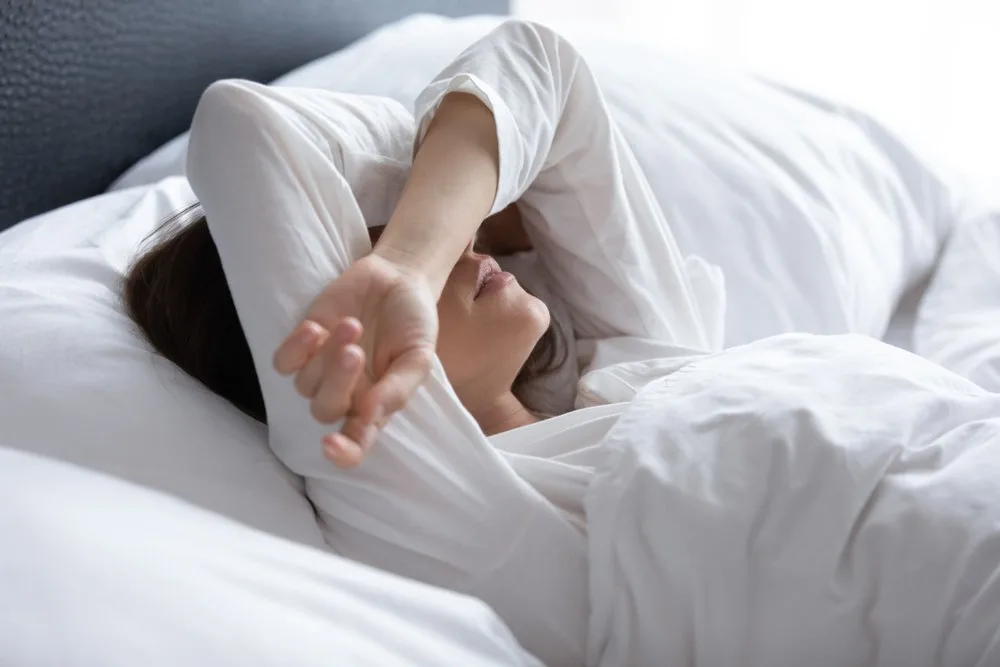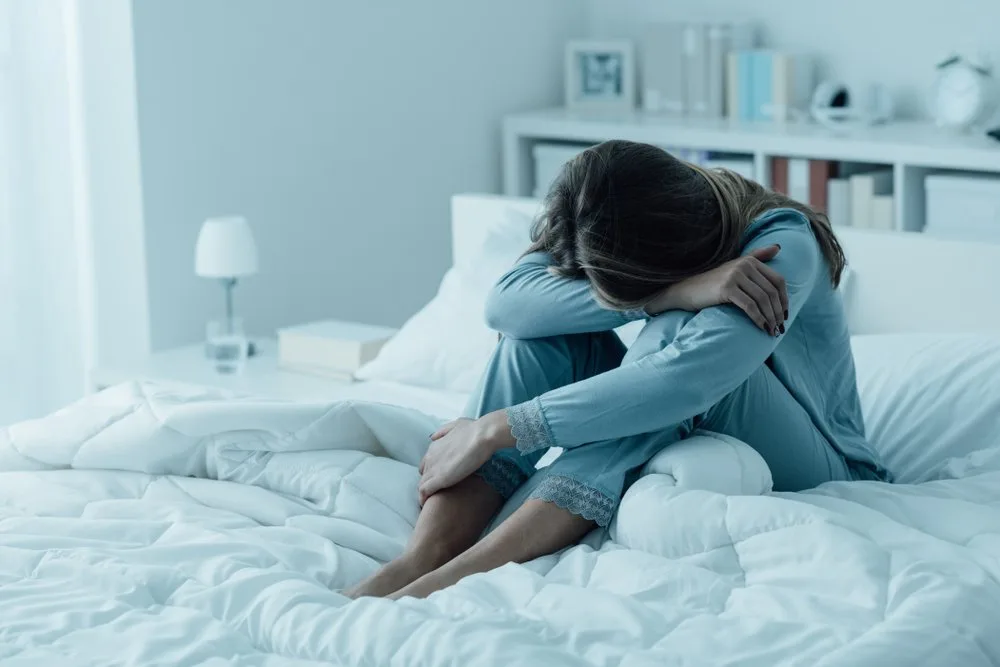We have often heard how a lack of proper sleep can lead to several health risks such as increased blood pressure, stroke, diabetes, etc. But this makes up just half the picture. There also exist numerous harmful psychological effects of sleep deprivation such as stress, anxiety, mood disturbances, daytime sleepiness, and so on.
These mental health issues in turn can severely affect your ease of falling asleep and the amount of time you spend in restful sleep. So, let’s look at the relationship between lack of sleep and mental health so that you can avoid such complications before they start getting out of hand. Longevity Live Partner Content.
7 Ways Sleep Affects Mental Health
#01 Depression
A common question among people facing sleep deprivation is “does lack of sleep cause depression?” As it turns out, not only can poor sleep trigger depression, but it can also worsen the effects among those who already suffer from it.
Not getting the right amount of sleep can induce feelings of dissatisfaction, unhappiness, and lack of hope. According to this study, taking antidepressants to combat depression can further damage your sleep health. Your best bet, therefore, is to take the right measures to improve your sleep health as soon as possible.
#02 Stress
Not getting enough sleep can lead to stress and excess stress will inadvertently lead to difficulty in falling asleep. Lack of sleep can disrupt the normal regulation of the body’s natural stress hormone called cortisol. Although cortisol plays a vital role in the body by elevating the level of stimulation and alertness, extended periods of stress can in turn cause more sleep deprivation.
It, therefore, becomes absolutely important to get out of this vicious cycle as soon as possible because it can cause a range of other issues related to physical and mental health such as high blood pressure, fatigue, excessive anger, and insomnia.
From waiting at the signal to completing a task, dealing with a bed bug infestation to selecting a dish, being stressed out can make it harder to deal with most everyday situations. Follow Insidebedroom’s suggestion on getting a good mattress encasement for yourself that can reduce the stress of all the things that can get accumulated in your mattress and ruin your night sleep.
#03 Irritability
It is common for people to wake up in the morning with a feeling of not having slept well and this can lead to grogginess and increased irritability.
Studies suggest that a lack of sleep can lead to an increased amount of activity in the amygdala region, a part of the brain’s limbic system responsible for regulating emotions and behaviors. This has been known to trigger a prolonged period of mood disturbances and a heightened risk of developing stress and anxiety.
#04 Neurodevelopmental Disorder
Lack of proper sleep is often associated with neurodevelopmental disorders. These include attention deficit hyperactivity disorder (ADHD) and other such conditions falling under autism spectrum disorder (ASD).
People (mostly kids) suffering from ADHD are prone to facing heightened impulsiveness, restlessness, and hyperactivity with a general difficulty at focusing attention. Symptoms such as these heavily contribute to a sleep pattern that is poor and inconsistent. Such people are also at risk of developing other sleep disorders. These include insomnia, restless leg syndrome, and obstructive sleep apnea.
#05 Memory Loss
The brain waves produced in the different stages of sleep at night are essential for proper memory consolidation. According to research from the University of California, Berkeley, this process of storing memories into the prefrontal cortex of the brain from the hippocampus becomes complicated when there is a lack of good sleep quality, especially among the elderly.
Poor sleep quality can also speed up the process of aging. Here is an extensive list of all the reasons why sleep is the best age-defying treatment. Prolonged poor sleep quality can therefore considerably harm your brain. It can wipe out essential memories and inducing a feeling of forgetfulness in you.
#06 Impaired Learning
To really learn, you need to be able to focus your attention and store the learned information in the mind.
Now, we have already seen how a lack of sleep affects the ability to maintain focus and consolidate memory. Based on that, researchers have inferred that sleep deprivation can make it harder (especially for children) to learn new things. Your work life is also considerably affected when someone is going through poor sleep health.
#07 Anxiety
Anxiety is a common problem among people who are experiencing bad sleep health. According to the Anxiety and Depression Association of America (ADAA), poor sleep health can worsen the symptoms of anxiety disorders. The most common anxiety disorders are obsessive-compulsive disorder (OCD), post-traumatic stress disorder (PTSD), social anxiety disorder (SAD), and phobias.
This can also lead to almost all the major sleep disorders. These include sleepwalking, bruxism, restless leg syndrome, narcolepsy, insomnia, and sleep apnea. A great way to calm your body down before heading towards bed is incorporating some good pre-bedtime activities in your sleep routine.

The bottom line
The impact of sleep on mental health is sometimes overlooked by people. This because of its relatively less prominent symptoms in the initial stage. This then makes it hard to comprehend the actual impact that it is having on their mental health.
Such mental health issues can easily spin out of control if left untreated for long. We would therefore recommend that you give your sleep and mental health the first priority. Try to actively engage in cognitive behavior therapy, medications, and any other treatment that your doctor has to offer.

References
- https://www.ncbi.nlm.nih.gov/pmc/articles/PMC6122651/
- https://www.ncbi.nlm.nih.gov/pmc/articles/PMC5548844/
This is how a lack of sleep impacts your longevity.






![women [longevity live]](https://longevitylive.com/wp-content/uploads/2020/01/photo-of-women-walking-down-the-street-1116984-100x100.jpg)










